

Weingut Van Volxem
Die Geschichte des Weinguts:
Das im historischen Zentrum von Wiltingen befindliche Stammhaus des Weinguts Van Volxem ist auf den Fundamenten einer römischen Hofanlage erbaut. Als ehemaliges Klosterweingut der Luxemburger Jesuiten verfügt es bereits seit dem frühen 18. Jh. über große Parzellen in besten Schiefersteillagen der Saar. Darunter so geschichtsträchtige Spitzenlagen (Grand Cru/VDP. Grosse Lage®) wie Scharzhofberger, Wiltinger Gottesfuß und Volz. Das ausschließlich Schiefersteillagen bewirtschaftende Weingut hat sein hervorragendes Lagenportfolio in den letzten Jahren nochmals um exzellente Weinberge in Ockfen, Wawern, Saarburg und Kanzem erweitert.
Diese naturräumlich privilegierten Terroirs zählen bereits seit der preußischen Lagenklassifikation von 1865 zur Klasse höchster Bonität. 93% der 80 ha Weinberge sind mit Riesling bepflanzt, 7% mit den Burgundersorten Pinot Blanc, Chardonnay und Pinot Noir, welche primär der Erzeugung hochwertiger Gutssekte dienen. Das durchschnittliche Rebenalter liegt bei etwa 35 Jahren. In der Lage Wiltinger Gottesfuß, einer der steilsten und renommiertesten Saarlagen, verfügt Van Volxem über die Rarität von etwa 130 Jahre alten, wurzelechten Riesling-Reben. Anfang 2000 wurde das Weingut von Roman Niewodniczanski erworben und denkmalgerecht restauriert. Erklärtes Ziel des in 2004 um den Betriebsleiter Dominik Völk verstärkten Teams ist es, mit einem konsequenten Qualitätsstreben an dem früheren Renommee dieses Wiltinger Traditionsguts anzuknüpfen.
Auf dem Wiltinger Schlossberg wird seit Anfang 2016 unter der Ägide italienischer Architekten eine moderne Manufaktur errichtet. Die Trauben- und Mostverarbeitung erfolgt hier - dem Vorbild preußischer Weinbaudomänen folgend – über mehrere Ebenen ausschließlich über Schwerkraft. Das Herzstück dieses in vielen Details nach Grundsätzen der Nachhaltigkeit errichteten Gebäudeensembles ist der Natursteinkeller, in dem unsere Weine in aus gutseigenen Eichen erzeugten Holzfässern reifen. Daneben wird ein Raritätenkeller den Rahmen für eine – wie zur Blütezeit des Saarweins üblich - langjährigen und äußerst schonenden Reifung hochwertiger Réserveweine in eigens entwickelten Drucktanks bieten. Unsere Vinothek im Turm des wie die gesamte Anlage komplett mit Travertin eingekleideten Empfangsgebäudes lädt die Besucher künftig zur Weinprobe mit grandiosem Panoramablick über den Altarm der Saar und die Grossen Lagen von Van Volxem ein.
Ahmet Sabri Ergin: Was macht die Qualität Ihrer Weine aus?
Roman Niewodniczanski: Im Mittelpunkt der Qualitätsphilosophie von Van Volxem stehen aufwändige weinbauliche Maßnahmen, die von der naturnahen, rein organischen Bodenbewirtschaftung bis zur akkurat von Hand erfolgenden Laubarbeit reichen. Um sehr reife, hoch aromatische Früchte zu ernten, wird die Ertragsmenge mit vielfältigen Maßnahmen wie der Grünen Lese/Traubenteilung u.a. auf durchschnittlich etwa 40 hl/ha beschränkt. Die Neu- bzw. Nachpflanzung von Reben erfolgte seit 2001 ausschließlich mit überwiegend wurzelechten Selektionsreben (sélection massale).
Die sehr traditionelle Weinbereitung auf Van Volxem erfolgt auf der Grundlage des Naturweingedankens. Ziel dieses hier konsequent handwerklichen Ausbaus ist die Bewahrung der Charakteristik einer jeden Weinbergslage. Die in der Regel möglichst spät im Oktober beginnende Ernte der physiologisch vollreifen Trauben erfolgt mit großem Personalaufwand in bis zu drei Lesedurchgängen selektiv und ausschließlich von Hand. Nach einer zum Teil mit modernen Korbkeltern erfolgenden schonenden Pressung der Beeren werden die Moste in großen Eichenfässern sowie temperaturgesteuerten Edelstahlgebinden sehr langsam vergoren. Um die individuelle Stilistik der verschiedenen Terroirs zu bewahren und Harmonie, Balance und eine hohe Reifefähigkeit der Weine zu erreichen, werden dabei keine Reinzuchthefen verwendet. Die sehr aufwändige und ausschließlich von Hand erfolgende Traubensortierung und die schonende Pressung der Trauben ermöglichen uns überdies, auf moderne önologische Verfahren und die Verwendung diverser chemischer Weinbehandlungsmittel wie Bentonite, Enzyme u.a. zu verzichten. Das Ergebnis sind im Alkoholgehalt bewusst sehr leichte und damit äußerst verträgliche, mineralienreiche Weine mit einer opulenten Rieslingfrucht – trinkfreudige Naturweine mit einem eindeutigen Lagenprofil und großen Reifepotential – Weine im Stil der berühmten Saarweine um 1900.
Mit Ausnahme der frucht- und edelsüßen Spezialitäten liegen sämtliche Van Volxem-Weine im geschmacklich trockenen Bereich, was sie als Begleiter aromatischer Gerichte prädestiniert. Da dank niedrigster Erträge und später Lese ausschließlich Spät- und Auslesemostgewichte erzielt werden, wird bei diesen Weinen, wie in der Zeit um 1900, auf Prädikatsangaben verzichtet. Van Volxem-Weine mit dem Zusatz „Kabinett“, „Spätlese“ oder „Auslese“ sind immer frucht- bis edelsüß. Der Verkauf der Weine aus den fünf Grossen Lagen (Grand Cru/VDP. Grosse Lage®) erfolgt nicht vor September und teilweise auch erst nach mehrjähriger Reifung.
Ahmet Sabri Ergin: Was zeichnet Ihr Weingut aus? Was ist Ihr DNA?
Roman Niewodniczanski: Steillagenweinbau ist Handarbeit – wir sind eine Manufaktur im klassischen Sinne. Weil wir davon überzeugt sind, dass die Faszination unserer Weine nur so entstehen kann. Wir glauben an Weine für die Ewigkeit – langlebig und nachhaltig, um endlose Freude zu bereiten. Und wir glauben an Weine für den puren Genuss – gemacht, um mit Freude und Freunden getrunken zu werden. Auf Van Volxem herrscht der Geist der Zeitlosigkeit – wir glauben, dass man viele Dinge anders machen sollte, aber auch vieles nicht besser machen kann, als es bei uns seit zwei Jahrtausenden praktiziert wird. Wir glauben an authentische Weine – an Handarbeit – bereitet mit wilden Hefen und ohne chemische Zusätze. So wie die Weine sind auch die Menschen, die auf Van Volxem arbeiten: einzigartig. Es ist die Passion für guten Wein, das Streben nach Perfektion, das uns antreibt. Perfektion, die wir wahrscheinlich (oder hoffentlich?) nie erreichen werden. Wir sind es, die wir mit unseren Händen, allen Sinnen, mit Leidenschaft und handwerklicher Präzision den schroffen Steillagen der Saar große Weine abringen. Mit Wissen, Vertrauen, Zeit für das Wesentliche und Geduld erschaffen wir faszinierende Kreszenzen von unschätzbarem Wert.
VAN VOLXEM
SAARWEINE GROSSER LAGEN
The History of the Saar
How the Saar made its reputation.
“The area is small and the winegrowing villages are few, but they have certainly learned to make a name for themselves. […] Saar wines are generally credited with displaying the most noble of Riesling bouquets, even more than do those of the Mosel Valley. They are also leaner, more ethereal, and indeed even lighter in color, but otherwise generally of genuine Mosel character.” H. Koch, Moselwein, 1897
“There is only one confession that I cannot deny, such a fine Saar vintage wine, with its sparkling freshness, belongs to the best… which the Lord has matured on this planet.” This original quote from a commemorative publication in 1927 expresses perfectly our enthusiasm for the fantastic quality and rare potential of the Saar.
In terms of size, the rather small viticulture of the Saar, is limited predominantly to south-facing slate slopes. This unique combination of barren, mineralrich, fertile, slate soils and the warmth of the steep slopes, is so important to the aroma formation of the Riesling. Arno Luik from Stern described this unusual situation on the steep slopes of Van Volxem as “a climatic border area where heaven and hell are close together.”
The result is glorious ripe fruit, moderate alcohol and a fascinating elegance and delicacy. At the end of the 19th century, Saar wines achieved top prices at the important Trier auctions, on average, prices were significantly higher than those of the Mosel. The great importance of the Saar at this time is evident in the fact that, although it only had a 10-percent share of the entire Mosel region, almost half of the “best Mosel wines” auctioned in Trier came from the renowned Saar estates.
The natural wine concept.
The focus of our intense work is a conscious return to artisanal traditions with a respect for the uniqueness of our steep slopes. The basis for the worldwide success of Mosel and Saar-wines during the imperial period was the Burgundian concept of “clos” and “terroir” and we are committed to this legacy.
Wine style
Respect for the uniqueness of our steep slopes
“Full of excitement, profoundly immense minerals, salty, of dense texture, pure drinking pleasure!” Falstaff
Following the long tradition of Van Volxem, our wines are mostly dry – thought of as a harmonious meal companion, moderate in alcohol, ripe in acidity, dense and complex in structure. Our wines’ uniqueness is shaped by the barren, mineral-rich slate soils of our steep slopes, themselves relics of millions of years old sea deposits.
The Van Volxem style is characterized by the striving for balance and harmony in the glass. Animating wines from a unique location and with great aging potential – in the style of the famous Imperial Saar wines.
“Power, sophistication, elegance, depth without end – incredible”
Sommelier Justin Leone.
They are wines that challenge in every respect: with back-breaking work in the steep slate gorges; the cellar master with the careful, loving handling of his barrels and ultimately the connoisseur appreciating the intricacies of the wine. Low stock yields, strict selection, a harvest possibly not before mid-October, spontaneous fermentation and maturity are all part of our Saar wine culture.
The slate.
The Devonian slates form the basis of our work. The exposure and nature of our vineyards and the rather cool climate of the Saar form a unique combination – perfect for our Saar wine culture.
The Wine Cellar.
After a gentle pressing of the grapes, some with modern basket presses, the must is fermented very slowly in large oak casks as well as temperature-controlled stainless steel tanks. In order to preserve the individual style of the various terroirs and to achieve harmony, balance and a high level of maturity, cultured yeasts are generally not used.
The elaborate and exclusive manual sorting and pressing of the grapes enables us to use modern natural processes and to renounce the use of various wine treatment agents such as bentonites, enzymes etc.
The result is a light alcohol content and therefore extremely digestible, mineral-rich wines, with an opulent Riesling fruit bouquet, with a clear place profile and great aging potential, in the style of the famous Saar wines from the Imperial era.
Ahmet Sabri Ergin: What constitutes the quality of your wines?
Roman Niewodniczanski: At the heart of Van Volxem's quality philosophy are elaborate viticultural measures, ranging from close-to-nature, purely organic soil management to meticulous manual foliage work. In order to harvest very ripe, highly aromatic fruit, the yield is limited to an average of about 40 hl/ha with a variety of measures such as green harvesting/grape splitting, among others. Since 2001, new vines have been planted exclusively with selection vines (sélection massale).
The very traditional winemaking at Van Volxem is based on the idea of natural wine. The aim of this consistently manual vinification here is to preserve the characteristics of each vineyard site. The harvest of the physiologically fully ripe grapes, which usually begins as late as possible in October, is carried out selectively and exclusively by hand with a great personnel effort in up to three harvesting rounds. After a gentle pressing of the grapes, which is partly done with modern basket presses, the musts are fermented very slowly in large oak barrels and temperature-controlled stainless steel vats. In order to preserve the individual style of the different terroirs and to achieve harmony, balance and a high ripeness of the wines, no pure yeasts are used. The very elaborate and exclusively manual sorting of the grapes and the gentle pressing of the grapes also enable us to do without modern oenological processes and the use of various chemical wine treatment agents such as bentonite, enzymes, etc. The result is wines with a deliberately very low alcohol content. The results are deliberately very light in alcohol content and thus extremely compatible, mineral-rich wines with an opulent Riesling fruit - easy-drinking natural wines with a clear site profile and great ageing potential - wines in the style of the famous Saar wines around 1900.
With the exception of the fruity and noble sweet specialities, all Van Volxem wines are dry in taste, which makes them predestined to accompany aromatic dishes. Since, thanks to the lowest yields and late harvesting, only late harvest and Auslesemost wines are produced, these wines are not labelled with a predicate, as was the case in the 1900s. Van Volxem wines with the addition of "Kabinett", "Spätlese" or "Auslese" are always fruity to noble sweet. The wines from the five Grossen Lagen (Grand Cru/VDP. Grosse Lage®) are not sold before September and in some cases only after several years of maturation.
Ahmet Sabri Ergin: What distinguishes your winery? What is your DNA?
Roman Niewodniczanski: Steep slope viticulture is manual work - we are a manufactory in the classical sense. Because we are convinced that the fascination of our wines can only be created in this way. We believe in wines for eternity - long-lasting and sustainable, to give endless pleasure. And we believe in wines for pure enjoyment - made to be drunk with pleasure and friends. At Van Volxem, the spirit of timelessness prevails - we believe that many things should be done differently, but also that many things cannot be done better than they have been for two millennia. We believe in authentic wines - handmade - prepared with wild yeasts and without chemical additives. Just like the wines, the people who work at Van Volxem are also unique. It is the passion for good wine, the pursuit of perfection that drives us. Perfection that we will probably (or hopefully?) never achieve. It is we who, with our hands, all our senses, with passion and artisanal precision, wrest great wines from the rugged steep slopes of the Saar. With knowledge, trust, time for the essentials and patience, we create fascinating wines of inestimable value.







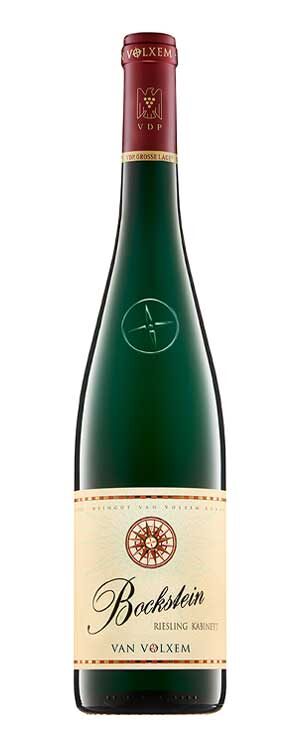
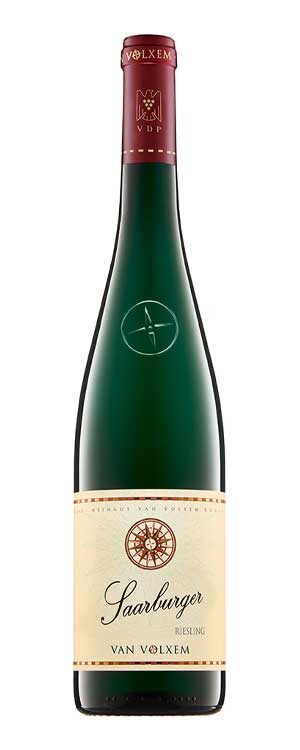
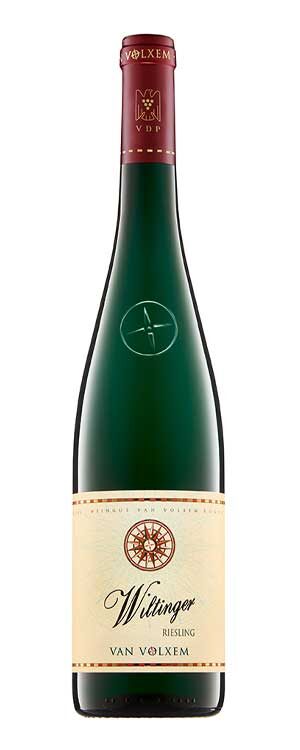
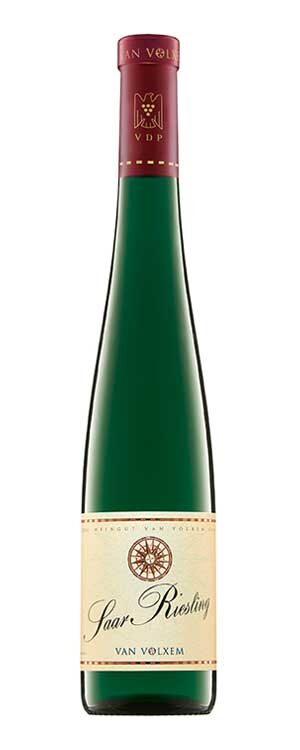
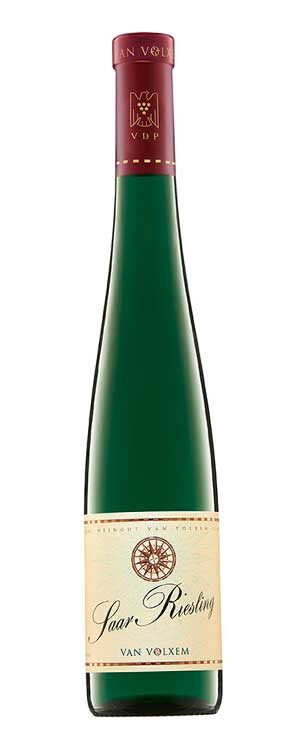
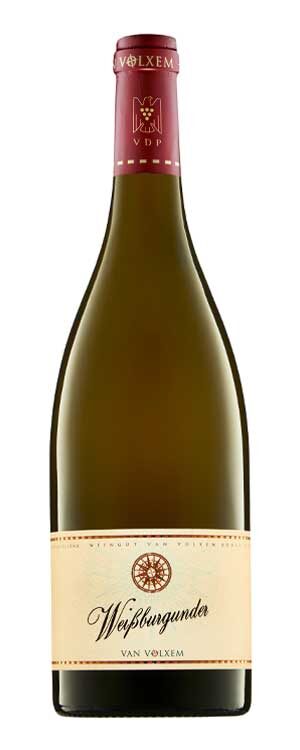
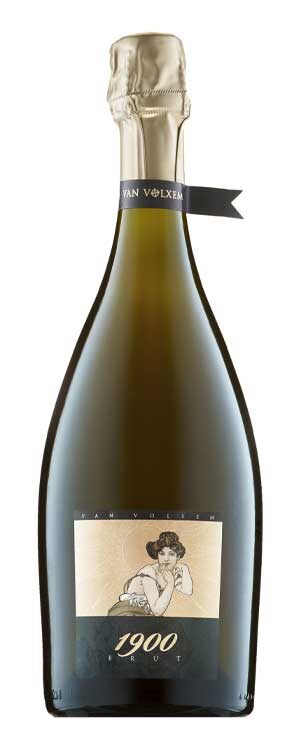
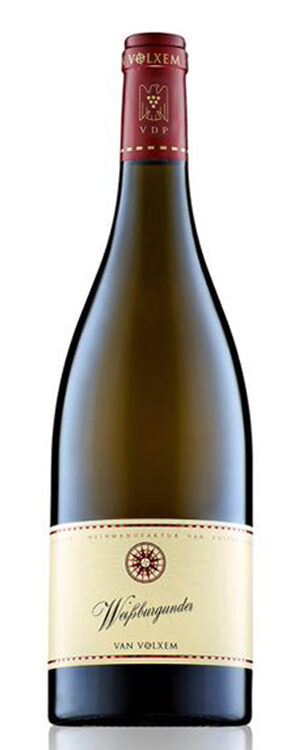
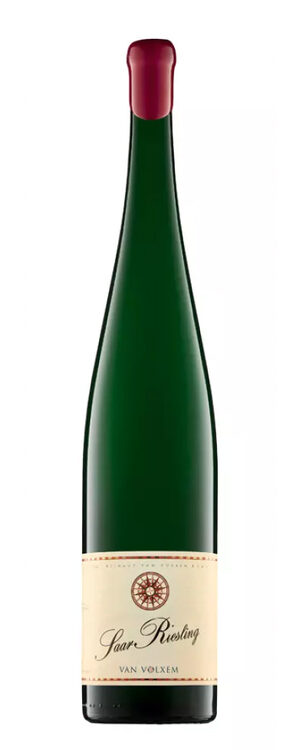
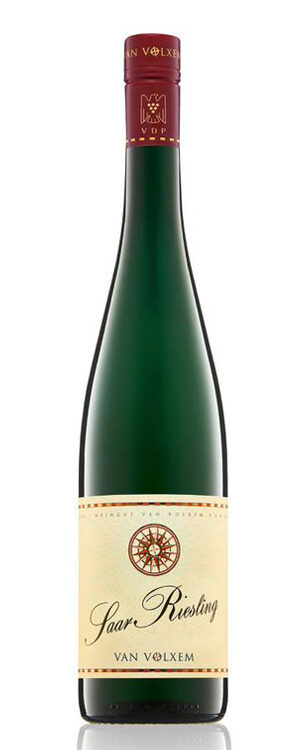
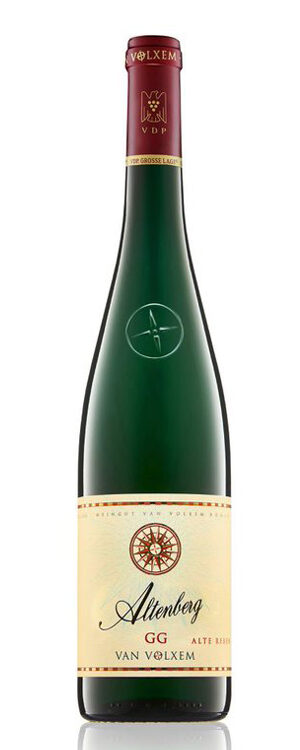
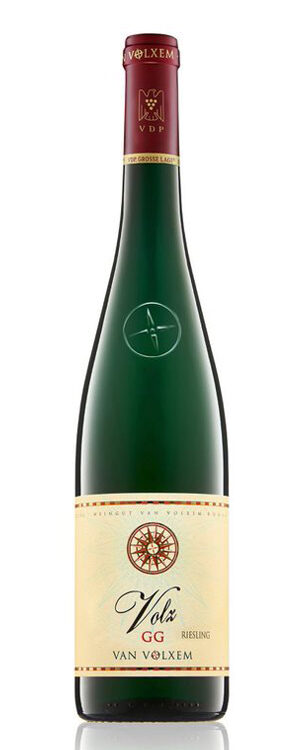
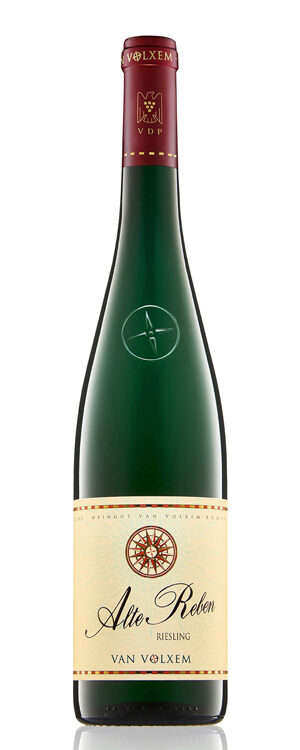
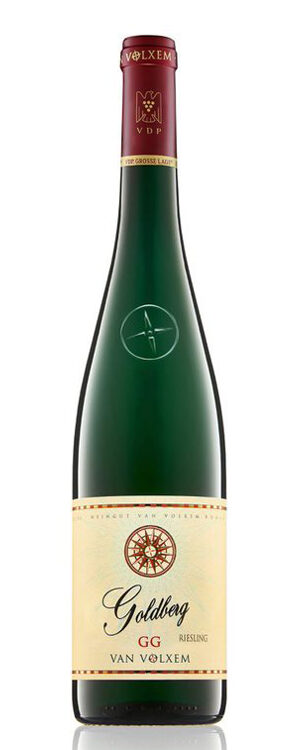
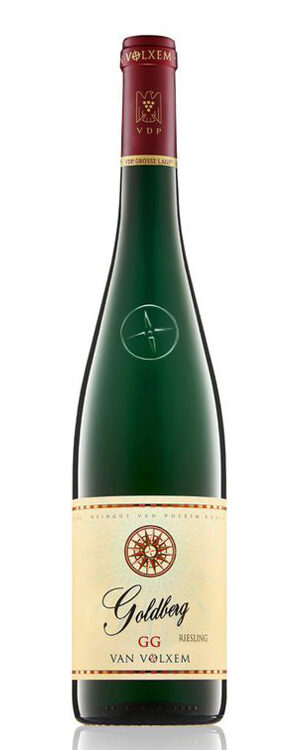
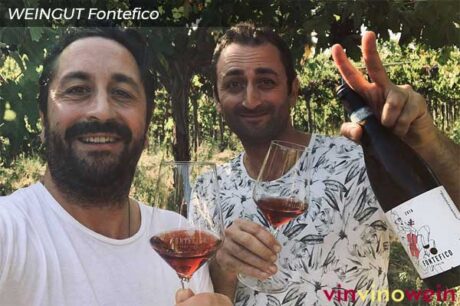
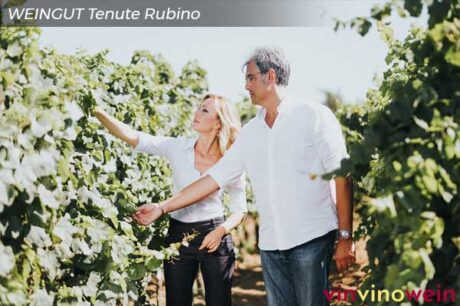
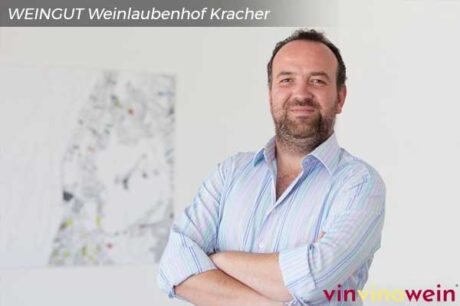
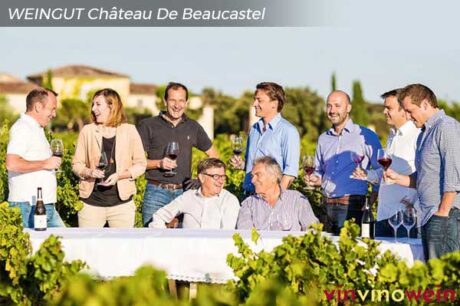
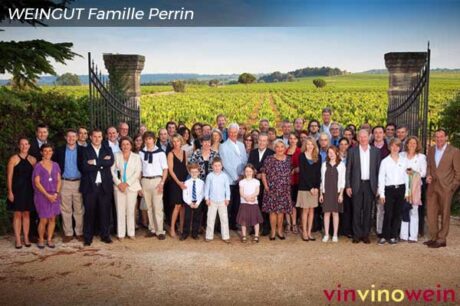
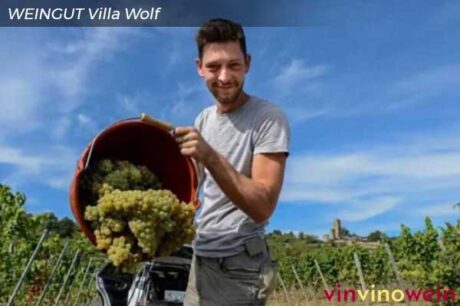
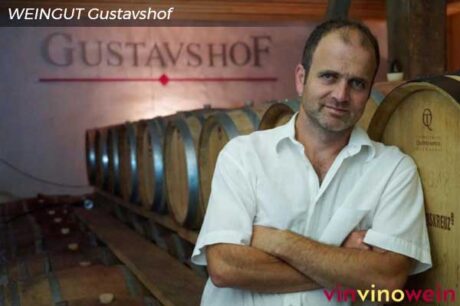
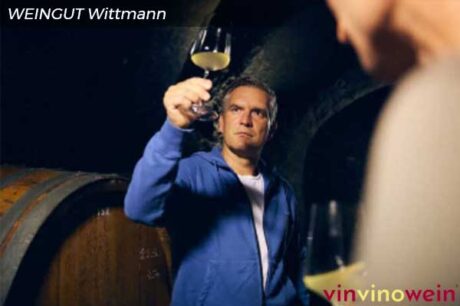
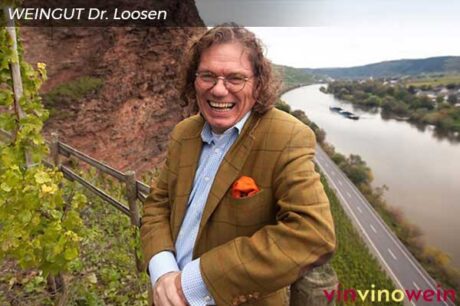

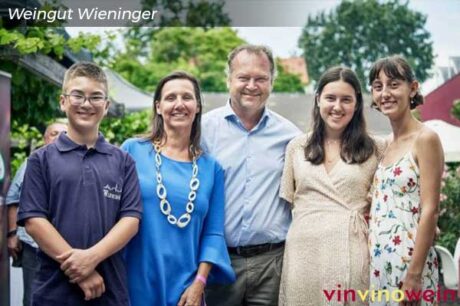
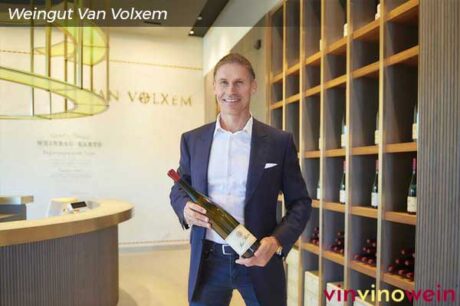
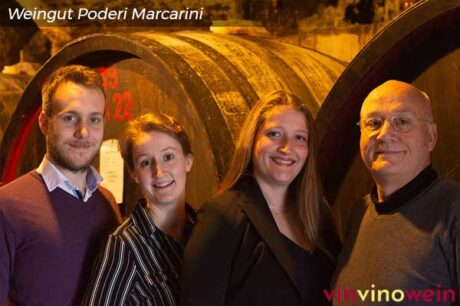
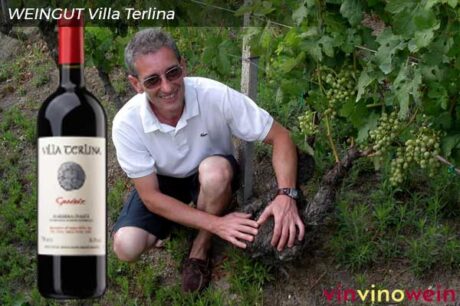
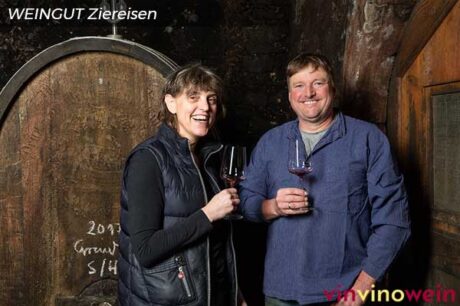
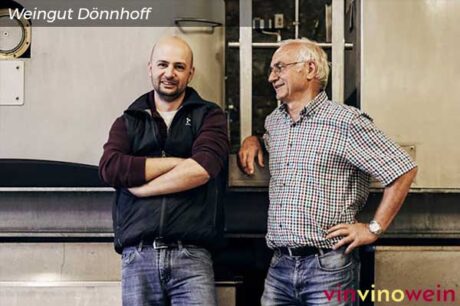
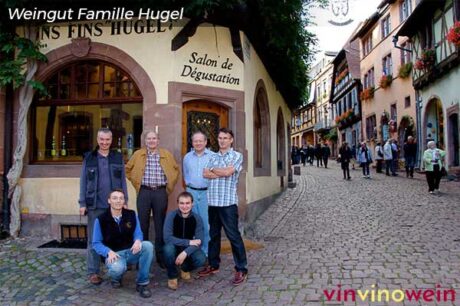
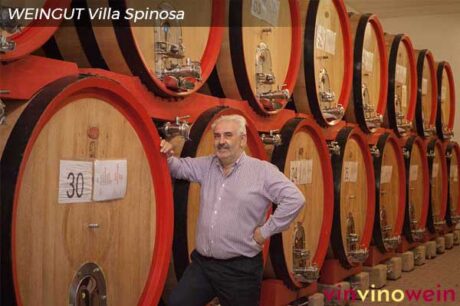
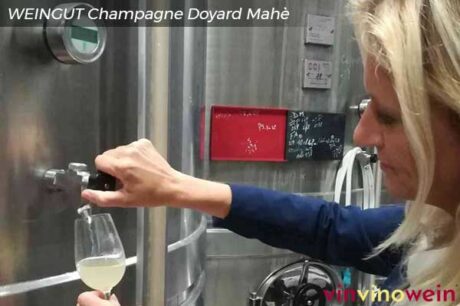
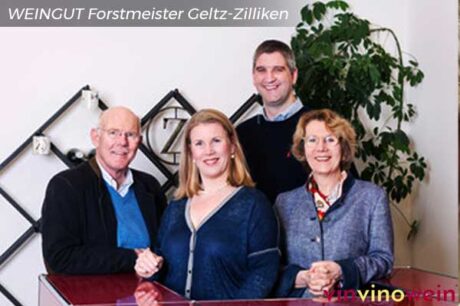
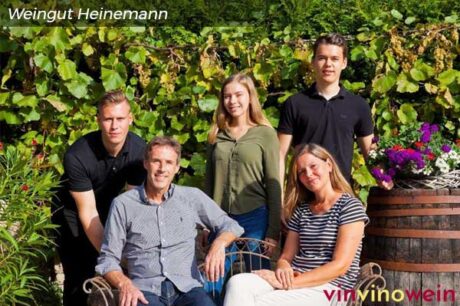
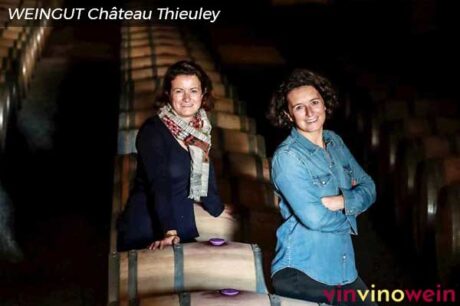
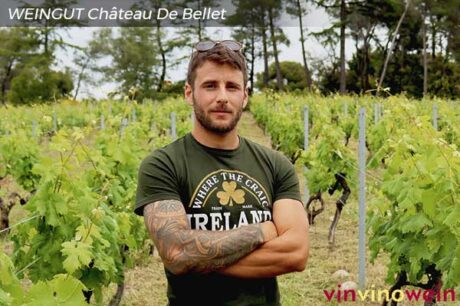
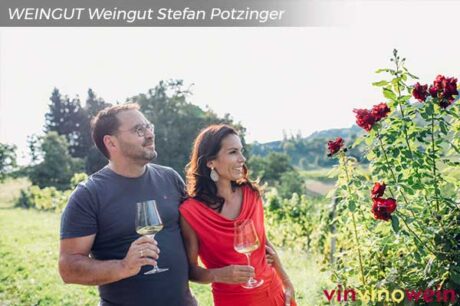


 Weinberatung
Weinberatung